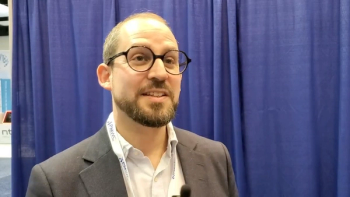
The decision is based on President Trump’s executive order issued last year.

Pfizer will expand its obesity drug pipeline with Metsera’s clinical incretin and amylin programs, highlighting advances in biopharma development and manufacturing.

The investment will be done over five years and will include new, state-of-the-art R&D facilities as well as new or expanded manufacturing sites in multiple US states.

Novartis will invest $23 billion during the next five years to expand manufacturing and R&D in the US, which will include seven new facilities and a new research hub.

Marks called out an ‘assault’ on truth and science in his resignation letter, which has sent the bio/pharmaceutical industry reeling.

In response to a presidential Executive Order, the Department of Health and Human Services is planning to reduce its workforce, including cutting FDA staff by 3500 full-time employees, and reorganize some key departments.

With the investment, AstraZeneca will establish a second global strategic R&D center in Beijing as well as support major research and manufacturing agreements to further advance life sciences in the country.

Vector Bioscience Cambridge is developing highly porous nanomaterials that can help reduce toxicities due to the small amount of vehicle material.

The manufacturing agreement is expected to run through December 2030, subject to change, with production to take place at Samsung Biologics’ Songdo, South Korea, site.

With the DKK 8.5 billion (US$1.2 billion) investment, Novo Nordisk will build a new modular and flexible production facility in Odense, Denmark, to produce multiple products for rare diseases.

Under the deal, Novartis will in-license PTC518, an mRNA splice modulator for the huntingtin gene, which has the potential to be the first oral disease-modifying therapy for Huntington's disease.

Lilly will expand its recently acquired manufacturing facility in Wisconsin with a $3 billion investment, and Amgen will expand its North Carolina facility with a $1 billion investment.

The companies expect to accelerate the clinical development of MRT-6160, a Phase I drug candidate, as well as explore further therapeutic opportunities across multiple indications.

Through the collaboration, Merck will use Mestag’s proprietary RAFT platform to investigate the pathogenic role that fibroblasts play in inflammatory diseases.

This year's CPHI award winners emphasize achievements in pharma excellence.

Lilly has increased its manufacturing investment for biologics in Limerick, Ireland, by $1 billion while launching its new $800 million facility in Kinsale.

With the completion of its acquisition of Morphic, Lilly expands its immunology pipeline to include Morphic's oral integrin therapies to address inflammatory bowel disease.

Under a deal worth potentially up to $1.3 billion, Merck, known as MSD outside of the United States and Canada, will acquire CN201, a next-generation bispecific antibody, from Curon Biopharmaceutical.

With this acquisition, AbbVie gains Cerevel’s clinical-stage assets that complement AbbVie's emerging neuroscience pipeline as well as branded products for treating psychiatric disorders, migraine, and Parkinson's disease.

Novo Nordisk plans to invest $4.1 billion in a second fill/finish manufacturing facility in Clayton, N.C., boosting its current 2024 investments into production to $6.8 billion.

Under an agreement, Johnson & Johnson will acquire Numab Therapeutics’ wholly owned subsidiary to gain global rights to NM26, a bispecific antibody targeting atopic dermatitis.

Biogen’s acquisition of HI-Bio includes lead investigational mAb, felzartamab, under development for treating a range of immune-mediated diseases.

The Mirus Bio acquisition will boost Merck KGaA’s viral vector manufacturing services.

Mariana’s portfolio of radioligand therapies will strengthen Novartis’ radioligand therapy pipeline.

In a $1.8 billion transaction, Genmab will gain three clinical-stage next-generation ADC candidates with its acquisition of ProfoundBio.

With the Vacaville, Calif., site acquisition, Lonza gains one of the largest biologics manufacturing sites for mammalian cell-based therapeutics.

Johnson & Johnson’s $2 billion acquisition of Ambrx boosts its pipeline of next-generation ADCs for cancer treatment.

Daiichi Sankyo is investing approximately €1 billiion (US$1.08 billion) to expand its Pfaffenhofen an der Ilm, Germany, site for ADC development and production.

Through a €2.7 billion (US$2.9 billion) acquisition of MorphoSys, Novartis will get pelabresib, a late-stage drug candidate in development for cancer treatment.

Novo Holdings has entered into a merger agreement with Catalent and will acquire Catalent in a deal valued at $16.5 billion.